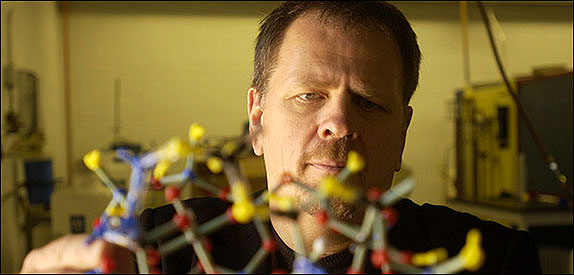It’s common knowledge that the perfect is the enemy of the good, but in the nanoscale world, perfection can act as the enemy of the best.
In the workaday world, engineers and scientists go to great lengths to make the devices we use as perfect as possible. When we flip on a light switch or turn the key on the car, we expect the lights to come on and the engine to start every time, with only rare exceptions. They have done so by using a top-down design process combined with the application of large amounts of energy to increase reliability by suppressing natural variability.
However, this brute-force approach will not work in the nanoscale world that scientists are beginning to probe in the search for new electrical and mechanical devices. That is because objects at this scale behave in a fundamentally different fashion than larger-scale objects, argue Peter Cummings, John R. Hall Professor Chemical Engineering at Vanderbilt University, and Michael Simpson, professor of materials science and engineering at University of Tennessee, Knoxville, in an article in the April issue of the ACS Nano journal.
 Peter Cummings (Daniel Dubois / Vanderbilt University) |
NOTE: Cummings and Simpson conduct research at the Department of Energy’s Center for Nanophase Materials Sciences at Oak Ridge National Laboratory. CNMS is one of five national DOE Nanoscale Science Research Centers.